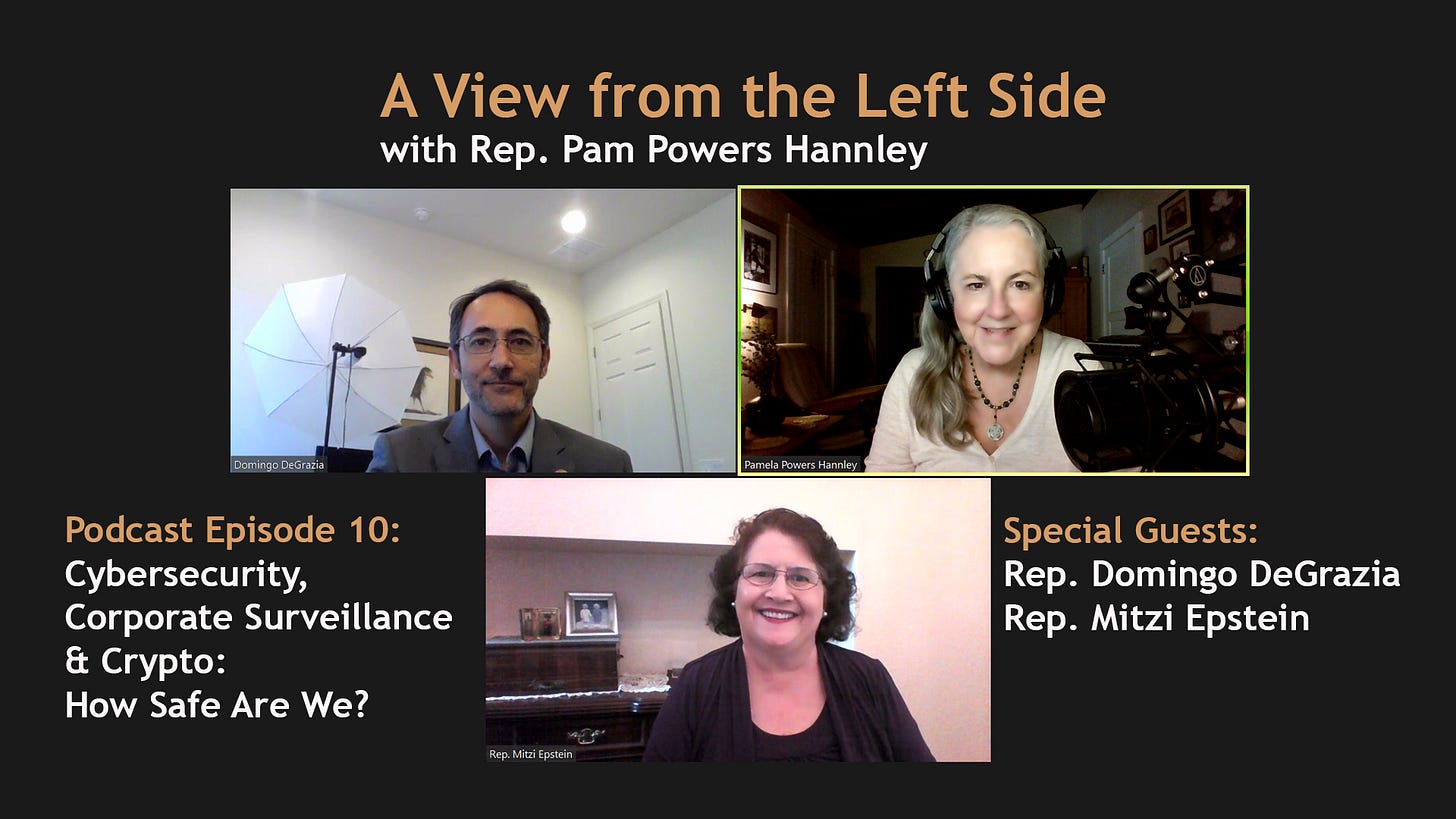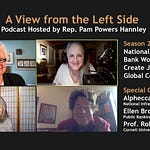Before each Legislative session, out-of-town legislators, like myself, have to find living quarters in Phoenix for roughly six months.
Shopping for apartments and combing through corporate websites to look for affordable housing with no hidden fees is a laborious process. No matter how careful I am, the corporate landlords seem to always stick me with me with something.
A few years ago, I made the mistake of renting a “smart” apartment. I saw on the website that the smart apartment option was available. I didn’t realize until I showed up with the movers and a truck full of furniture that I couldn’t get out of that option. A smart apartment is one that tracks your every entry and exit with your smart phone, tracks your utility usage, and tracks who knows what else. My smart apartment had sensors hung here and there throughout the apartment, including closets and cupboards. The sensors were easy to see – and a bit creepy. What wasn’t easy to see was the smart apartment section of the lease which said by signing the lease I was giving an unnamed subcontractor permission to collect, store and use my personal data. I couldn’t get out of the $40 per month fee for a smart apartment, but I chose not to download and activate the app.
The smart apartment now seems like a quaint, old fashioned attempt at surveillance mostly because the tracking was so obvious, and by accepting a bit of inconvenience, I was able to get around most of the surveillance.
Today, with social media plus 5G, smart phones, smart watches, and all sorts of wi-fi or bluetooth enabled devices from refrigerators to car radios, we are surrounded by devices and software programs that are tracking us, collecting data, building profiles and using what they have learned about us to influence our behavior.
Maybe the data-driven algorithms are just trying to get you to buy another pair of shoes because you posted a photo of your old shoes on Instagram OR maybe they’re feeding you misinformation to keep you outraged and engaged and boost their profits.
Recently, Facebook whistleblower Frances Haugen told Congress that when there were “conflicts between its own profits and our safety. Facebook consistently resolved these conflicts in favor of its own profits. The result has been more division, more harm, more lies, more threats, more combat.” According to Haugen and others, Facebook knows that its algorithms boost engagement with the site by boosting outrage, fear and other negative emotions.
An overabundance of fake news, paid political advertising and trolls gaslighting the facts have turned most social media sites into cesspools of misinformation and click bait to boost engagement and profits.
There is little or no regulation to protect the privacy of the unassuming public or to ensure the accuracy of information disseminated through social media. Consumers are left to ferret out scams and misinformation on their own.
The highly unregulated landscape of Internet-based commerce and finance is the ideal breeding ground for risky, questionable get-rich-quick schemes.
Enter cryptocurrency, nonfungible tokens (NFTs), and blockchain.
Maybe you have heard these terms, but you don’t know exactly what they mean or you’re not sure why you should care.
One reason that you should care about these topics is that the Arizona Legislature created a Blockchain and Cryptocurrency Study Committee to promote these new technologies – not really to study them. The committee, which is meeting publicly during the interim, has 19 members: four Republican Legislators, two Democratic Legislators and 12 people who have business interests in blockchain and cryptocurrency. What could go wrong?
Today’s podcast covers Internet privacy, cybersecurity and their relationship to cryptocurrency, NFTs and blockchain.
Interview Guests
My guests today are two of my colleagues in the Arizona House of Representatives. Serving LD10 in Tucson, Rep. Domingo Degrazia is a lawyer by profession, a Certified Information Privacy Professional, and drafter of the proposed Arizona Data Privacy bill. He is Whip for the House Democratic Caucus and serves on both the Judiciary and Rules Committees. Serving LD18 in Maricopa County, Rep. Mitzi Epstein is a computer systems analyst by profession. She worked for Olin Brass Manufacturing and in the Treasury Department at Citicorp Mortgage. She is Ranking Democrat on the House Ways and Means Committee and also serves on the Rules Committee and the Land, Agriculture and Rural Affairs Committee.
Here is a link to the podcast website. You can also subscribe to A View from the Left Side on multiple podcasting services such as Apple Podcasts, Spotify, I Heart Radio, Podcast Index, Podcast Addict, Pocket Casts, Deezer and others. YouTube podcast videos and original Legislative update videos can be found on my YouTube Channel.
Podcast Topic Time Stamps
PPH Commentary 00:42
Interview with DeGrazia and Epstein 05:26
Privacy and Security on the Internet 06:08
Are People too Trusting? 08:36
Are Devices Listening to Us? 09:52
There Is Little Government Regulation. Tech Regulates Itself 10:11
Personal Information Was Used Against People in WWI, WWII 11:03
Radicalization and Misinformation Spreads through Social Media 12:52
Outrage Algorithms Build Anger and Profits 13:58
European Internet Regulations 14:34
Regulation Is Patchy or Nonexistent in Most US States 15:40
Is It a Good Thing that Some Apps Track Your Every Step? 16:53
Some of Your Data Is Being Collected and Used by Other Countries, including China 17:23
Deleting Apps that Track You 18:33
What about Cryptocurrency, Nonfungible Tokens, and Blockchain? 19:23
Blockchain Is Just One Tool 20:46
Which AZLeg Blockchain and Cryptocurrency Committee Members Are Invested in Crypto? 22:42
Cryptocurrency Is Built on Nothing 23:03
Nonfungible Tokens (NFTs) 23:47
Members of Tech/Crypto Industry Outnumber Legislators on BCC 23:56
Are Cryptocurrencies and NFTs Risky Investments? 24:11
Cryptocurrency Is an Asset but Not a Currency 24:54
Cryptocurrency Is Intended to Be Secret 26:01
Cryptocurrency and Crime 26:28
Cryptocurrency and Cyberattacks 27:41
Mixed Feelings Internationally Regarding Cryptocurrency. 28:25
Banking Industry Wants Us to Keep Using Traditional Money 30:03
Crypto and Blockchain Use a ‘Stunning’ Amount of Electricity 30:30
Blockchain Is One of the Least Efficient Types of Databases 31:12
What Privacy Means to Them in Digital World 32:21















Share this post